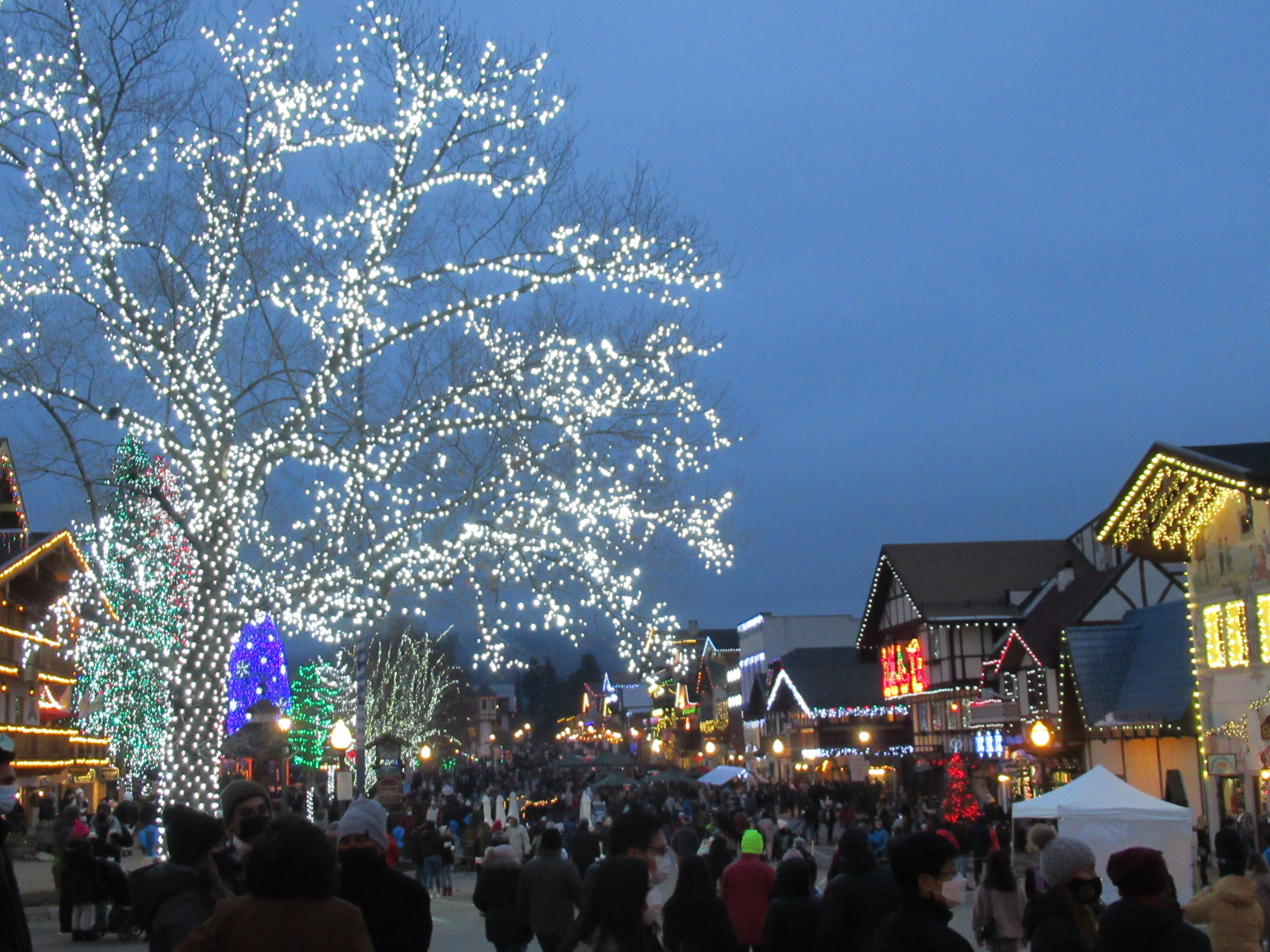
In Pandemic, The Northwest’s ‘Capital Of Christmas’ Draws Big Crowds To Leavenworth. Is It Safe?
Listen
Leavenworth Mayor Carl Florea says that this year, the “capital of Christmas” isn’t doing any of the usual characters, festivals, open fire pits or even the famous tree lighting.
“The only thing left that basically says we’re a Christmas town is that the trees in our park are still lit up with lights,” he says.
Even so, thousands are flocking to the Bavarian-themed town in central Washington. He says nearly 70% of Leavenworth merchants’ income comes in these few holiday weeks.
Crowds of visitors are key to Leavenworth’s economic survival.
And Florea says attendance has been about the same as a normal year — about 10,000 people each weekend night.
The Chelan County Sheriff’s Department is deploying the same number of deputies as usual — but leaving it up to officers whether to wear masks.
Dr. Malcolm Butler, health officer for Chelan and Douglas counties, says visitors are less likely to bring COVID-19 to Leavenworth than get it there.
“We have an enormous burden of COVID-19 right now,” Butler says. “This is kind of a dangerous place to visit.”
Eight-year-old Marisol Garcia’s family recently went to see Leavenworth’s famous lights.
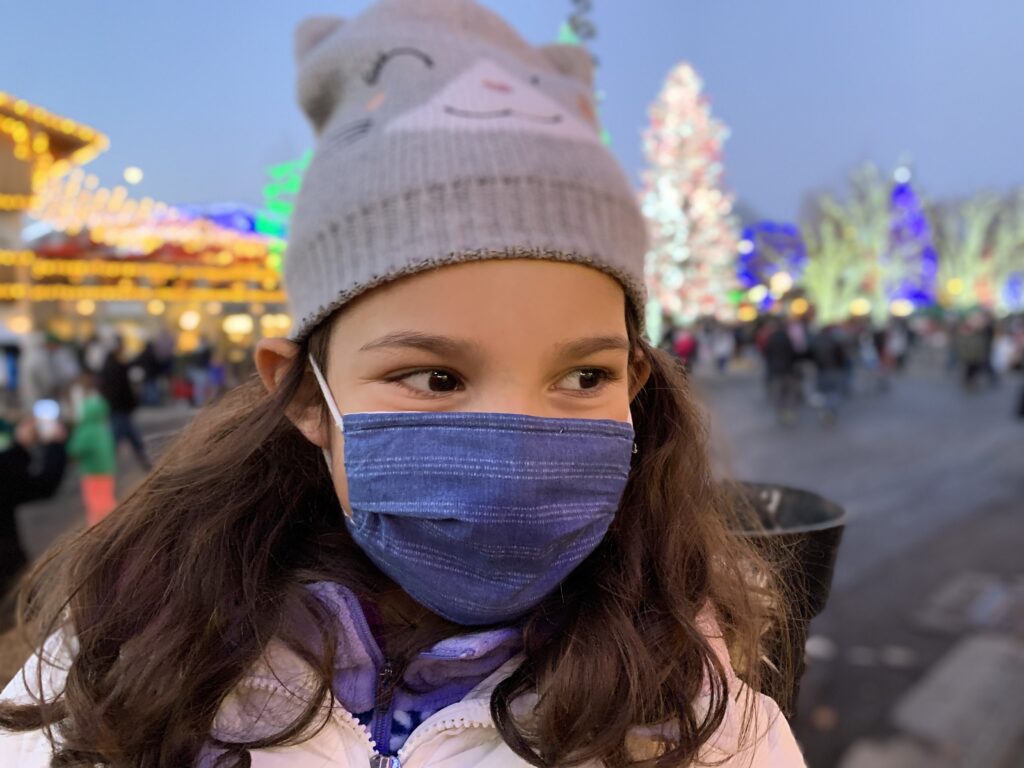
Marisol Garcia, 8, says she especially loves the pink, purple and blue lights in Leavenworth, Wash. Her family came to see the lights, but say they were reluctant of the crowds. Courtesy of Danica Garcia
“I really liked the lights they sparkled like diamonds in the evening sky,” Garcia says.
Her family tried to stay clear of most of the crowds. But infectious disease experts say even outside, large gatherings are risky.
“The likelihood that one or two or three people or many more people in that crowd — the likelihood that they have COVID, just increases,” says Nandita Mani with the University of Washington. “And the chance of transmission to people nearby increases as well.”
The viral expert says COVID-19 spreads by tiny airborne aerosols.
“And the aerosols because they are small and light, can remain suspended in the air for a longer period of time compared to the heavier droplets which will fall to the ground,” Mani says.
Some Leavenworth business owners have taken big COVID-19 precautions.
Brad Schmidt owns the Mountain Home Lodge. He’s closed off all the hotel rooms and is renting just two cabins now — a third of his normal income. Some guests are surprised, he says.
“They said ‘let me understand you correctly: You’re situated on 20 acres?’ Yes. ‘That’s five acres per guest.’ ‘I said yes, that’s correct. And that’s the way we’re gonna operate,’” Schmidt says.
Wenatchee Confrontation
Wenatchee, Chelan County’s largest city, a music promoter recently organized a concert called ChristmasFest.
The event was intended to draw 500 people. But it rained on the planned night, Dec. 19, and it appears only a few dozen turned out.
The night before, the same band played a private indoor party in Wenatchee.
The two events so incensed Zoe Hedges that she confronted the organizers in the streets of downtown Wenatchee.
Hedges was especially angry because her day job includes helping flip COVID-19 patients into a prone position.
“(Patients’) skin is beat up from being on their faces for 16 hours,” Hedges says. “They have tubes and wires and lines everywhere.”
The regional hospital system in Wenatchee, Confluence Health, serves Leavenworth and Wenatchee, and it’s “near capacity,” according to a Confluence spokesperson. Health officer Dr. Malcolm Butler says Douglas and Chelan counties in north-central Washington are a “hot spot.”
“We’d love to see you after you have a vaccine next summer,” Butler says.
Related Stories:
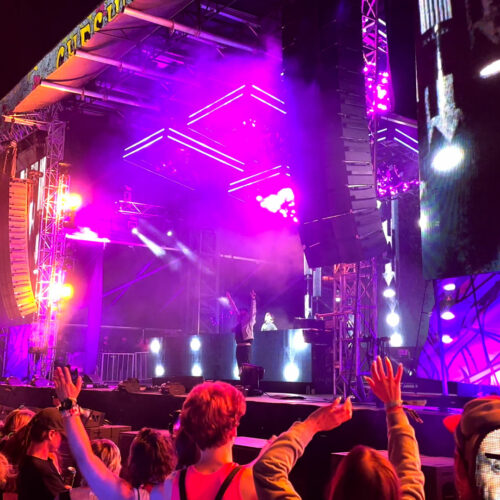
A year after two people died in a shooting at the Gorge Amphitheatre, two investigations into what happened at the Beyond Wonderland festival are still ongoing
Drum and bass artist Sub Focus lays down some tracks at the Gorge Amphitheatre in George, Washington, after the shooting at the Beyond Wonderland festival on June 17, 2023. (Credit:
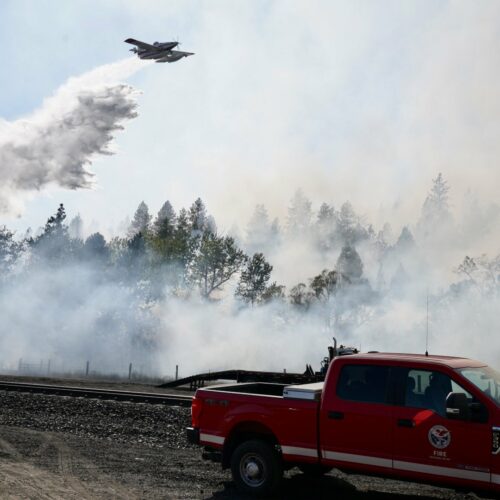
Connecting with non-English speakers is still a challenge during emergencies
Wildfires are always dangerous – but imagine not understanding the warnings. That’s a real challenge for communities with language barriers, and Washington emergency agencies say there is still a long way to go despite efforts to break those barriers.
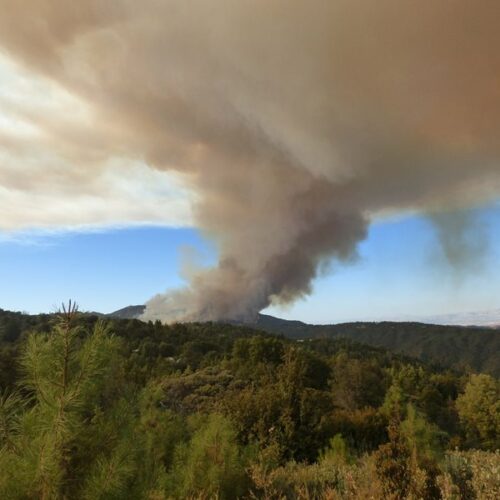
Study: farmworking parents need more resources to cope with wildfire seasons
Farmworkers’ families in Central Washington need more smoke safety information, accessible childcare, and other resources to be prepared for future smoke events. Those are the results of a recent study where researchers asked parents how they cope with wildfire seasons.















